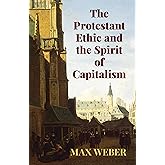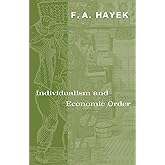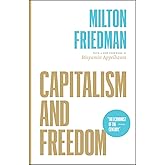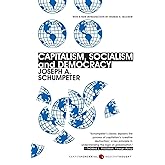
Amazon Prime Free Trial
FREE Delivery is available to Prime members. To join, select "Try Amazon Prime and start saving today with FREE Delivery" below the Add to Cart button and confirm your Prime free trial.
Amazon Prime members enjoy:- Cardmembers earn 5% Back at Amazon.com with a Prime Credit Card.
- Unlimited FREE Prime delivery
- Streaming of thousands of movies and TV shows with limited ads on Prime Video.
- A Kindle book to borrow for free each month - with no due dates
- Listen to over 2 million songs and hundreds of playlists
Important: Your credit card will NOT be charged when you start your free trial or if you cancel during the trial period. If you're happy with Amazon Prime, do nothing. At the end of the free trial, your membership will automatically upgrade to a monthly membership.
Buy new:
-18% $22.45$22.45
Ships from: Amazon.com Sold by: Amazon.com
Save with Used - Very Good
$7.33$7.33
FREE delivery June 17 - 24
Ships from: ThriftBooks-Baltimore Sold by: ThriftBooks-Baltimore

Download the free Kindle app and start reading Kindle books instantly on your smartphone, tablet, or computer - no Kindle device required.
Read instantly on your browser with Kindle for Web.
Using your mobile phone camera - scan the code below and download the Kindle app.

Building the Free Society: Democracy, Capitalism, and Catholic Social Teaching Paperback – October 19, 1993
Purchase options and add-ons
- Print length268 pages
- LanguageEnglish
- PublisherWm. B. Eerdmans-Lightning Source
- Publication dateOctober 19, 1993
- Dimensions6 x 0.67 x 9 inches
- ISBN-10080280120X
- ISBN-13978-0802801203
Discover the latest buzz-worthy books, from mysteries and romance to humor and nonfiction. Explore more
Frequently purchased items with fast delivery
Editorial Reviews
About the Author
Robert Royal is vice president for research at the Ethics and Public Policy Center, Washington, D.C., and author of 1492 and All That: Political Manipulations of History.
Product details
- Publisher : Wm. B. Eerdmans-Lightning Source
- Publication date : October 19, 1993
- Edition : First Edition
- Language : English
- Print length : 268 pages
- ISBN-10 : 080280120X
- ISBN-13 : 978-0802801203
- Item Weight : 12.8 ounces
- Dimensions : 6 x 0.67 x 9 inches
- Best Sellers Rank: #5,490,361 in Books (See Top 100 in Books)
- #3,165 in Christian Popes
- #4,639 in History of Religion & Politics
- #4,696 in Church & State Religious Studies
- Customer Reviews:
About the author

George Weigel, Distinguished Senior Fellow of the Ethics and Public Policy Center, is a Catholic theologian and one of America’s leading public intellectuals. He holds the William E. Simon Chair in Catholic Studies at the Ethics and Public Policy Center in Washington, DC.
From 1989 through June 1996, Mr. Weigel was president of the Ethics and Public Policy Center, where he led a wide-ranging, ecumenical and inter-religious program of research and publication on foreign and domestic policy issues.
Mr. Weigel is perhaps best known for his widely translated and internationally acclaimed two-volume biography of Pope St. John Paul II: the New York Times bestseller, Witness to Hope (1999), and its sequel, The End and the Beginning (2010). In 2017, Weigel published a memoir of the experiences that led to his work as a papal biographer: Lessons in Hope — My Unexpected Life with St. John Paul II.
George Weigel is the author or editor of more than thirty other books, many of which have been translated into other languages. Among the most recent are The Cube and the Cathedral: Europe, America, and Politics Without God (2005); Evangelical Catholicism: Deep Reform in the 21st-Century Church (2013); Roman Pilgrimage: The Station Churches (2013); Letters to a Young Catholic (2015); The Fragility of Order: Catholic Reflections on Turbulent Times (2018); The Next Pope: The Office of Peter and a Church in Mission (2020); and Not Forgotten: Elegies for, and Reminiscences of, a Diverse Cast of Characters, Most of Them Admirable (2021). His essays, op-ed columns, and reviews appear regularly in major opinion journals and newspapers across the United States. A frequent guest on television and radio, he is also Senior Vatican Analyst for NBC News. His weekly column, “The Catholic Difference,” is syndicated to eighty-five newspapers and magazines in seven countries.
Mr. Weigel received a B.A. from St. Mary’s Seminary and University in Baltimore and an M.A. from the University of St. Michael’s College, Toronto. He is the recipient of nineteen honorary doctorates in fields including divinity, philosophy, law, and social science, and has been awarded the Papal Cross Pro Ecclesia et Pontifice, Poland’s Gloria Artis Gold Medal, and Lithuania’s Diplomacy Star.
Customer reviews
Customer Reviews, including Product Star Ratings help customers to learn more about the product and decide whether it is the right product for them.
To calculate the overall star rating and percentage breakdown by star, we don’t use a simple average. Instead, our system considers things like how recent a review is and if the reviewer bought the item on Amazon. It also analyzed reviews to verify trustworthiness.
Learn more how customers reviews work on AmazonTop reviews from the United States
There was a problem filtering reviews. Please reload the page.
- Reviewed in the United States on January 18, 2010I just finished reading this collection of essays on Catholic Social Teaching.
Each essay is by an different author and comments on a particular social encyclical. This isn't to say the essays are merely summaries; each one critically examines the strengths and weaknesses of the encyclical it addresses.
I found the essay on the Declaration on Religious Freedom especially helpful. The author distinguishes three stages in the Catholic understanding of Church-State relations:
Stage 1: The Throne and Altar arrangement. This is the time of religious establishment as the Monarch and Church both endorse each other. The French called it the Ancien Regime, the Old Order. The problem with this arrangement, from my perspective, are twofold. First, the monarch ends up wanting to control the Church e.g. investiture controversy. Second, the Church's fortunes are tied up with the existing regime. If the monarch makes a mistake, then in the eyes of the people the Church is guilty by association. This is what happened in the French Revolution.
Stage 2: Continental Liberalism. This is the worldview of the thinkers behind the French Revolution: Democracy, autonomous individualism, and human rights. In the name of these ideas, the Revolutionaries unleashed the Reign of Terror and De-Christianization. It was these atrocities which were in the minds of churchmen when they opposed liberalism until Vatican II.
Stage 3: American Liberalism. A Jesuit, John Courtney Murray, argued that there was another form of liberalism which respected religion and would not lead to atrocities associated with Continental Liberalism. The Catholic Church had done well in America, even though it was a primarily Protestant Country. This occurred because the state did not establish any particular religion in the United States. Murray urged the Church to embrace this form of liberalism and in Vatican II's Dignitatis Humanae, she did.
The battle between the American (Personalist) and Continental (Liberal Individualist) meaning of democracy continues. It is occurring within America and the rest of the world generally. The first meaning views human beings as persons: social beings with rights AS WELL AS corresponding duties. Moreover, Personalist Democracy presupposes a transcendent reference point which is the source of our moral obligations. In contrast, the Liberal Individualist model sees humans as autonomous, self-interested beings. The source of moral obligations is either consent or utility.
The collection of essays is filled with interesting discussions like the one above. It was a difficult, but helpful, book to read.
- Reviewed in the United States on March 17, 2014This book is a carefully woven tapestry of extreme right economic theory, trouncing, in the principles of the Austrian School of Economics, Catholic social teaching, as embodied in eleven classical papal documents, and bleeding these documents of their obvlous meaning and intent.
The penchant of the articles is to give historical and political underpinnings to papal social teaching that robs the texts of their true meaning and re-interprets them in the light of the ideological biases of the authors. I would guess that the book was written in the wake of the founding of the Acton Institute by Robert Sirico in 1990 and is certainly a doctrinal manual for the critics of the papal social encyclicals.
There is no doubt that Methodological Individualism is at the heart of this critique of Catholic social teaching - and the effort to link Catholic efforts for social and economic justice to Socialist International is a ploy that simply does not work.
Methodological Individualism is not only amoral of its very definition, it is immoral in most of its applications.
It is the hint, woven through the whole text of this book, that Catholic social teaching is "left-leaning".
The authors interpret classical papal documents to further their own political agenda, wrapping that agenda in the garments of Faith, to disguise their true political intent.
Their belief in Gresham's Law has replaced their belief in economic justice, and their politics seemss to override their Catholic faith.
They are convinced, in keeping with the Austrian School, that the purpose of money is the market, and not the providing of human needs.
Father Clifford Stevens
Archdiocese of Omaha, Nebraska
- Reviewed in the United States on March 8, 2007This book was a disappointment from beginning to end. Basically it is an almost unqualified love fest for Catholic social teaching from Pope Leo XIII's Rerum Novarum to John Paul II's encyclicals. It lacks any in depth research or historical accounts. Brushes over many of the influences upon the popal encyclicals themselves by hiding the political and economic sources and positions of the various contributors to them. (white washes history)
The only area of honest criticism can be found on page 66 & 67 where it is finally admitted that Catholic social teaching has been too biased and takes a straw man position when issuing forth agaisnt Classical liberalism, but still will make no connection or comment on socialism's influence on Catholic social justice theory.
All and all I would not buy this book, but instead buy The Church and The Market, A Catholic Defense of the Free Economy, By Thomas Woods, Jr., to be found on Amazon. Com. This book was a tour de force! It was in-depth and did not pull any punches. It looked at the various encyclicals with a much more thorough eye and did not allow the glamor of ones faith to soften the intellectual edges of ones reason.
George Weigal et al. are neo-Catholics and Neo-Cons and their biases and their lack of intellectual depth, honesty and rigor show throughout their many books.
If you want a light hearted easy walk through the social encyclicals presented by "true believers" then this book is for you. If you wish to eschew the lobotomy, buy The Church and the Market.












